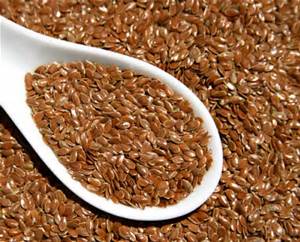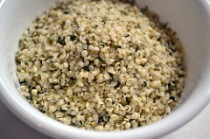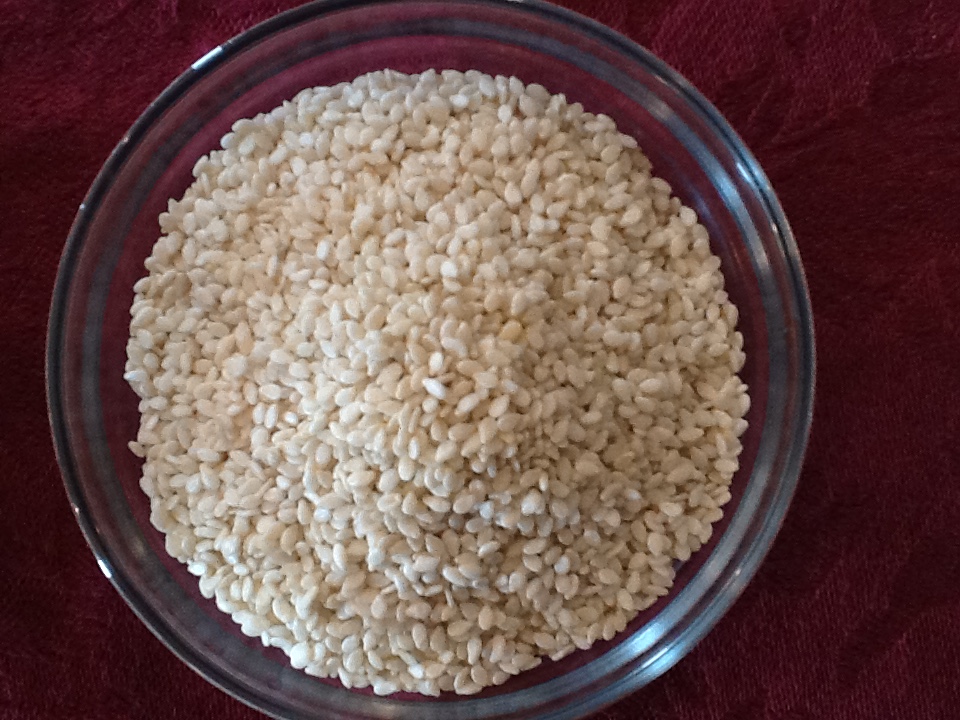It may be hard to believe that a food so tiny could offer up a host of nutritional and healing benefits, but that’s just what these seeds do. Nutritionally they offer a health trifecta –healthy fats, protein and fiber.
Aside from being a great source of vitamins and minerals, there are numerous studies on the benefits of adding seeds to your daily diet. Health benefits that include protecting your body against arthritis, diabetes, cancer, heart disease and stress.
Here’s a look at the six seeds:

Chia Seed
This tiny little seeds are from the mint family and are quite versatile. You can enjoy them in fruit drinks, smoothies, pudding, as a flour in baked goods, as an egg substitute, or even mixed with flour and seasonings as a breaded topping for a chicken, fish or veggie dish.
Per gram chia seeds contain:
8x more Omega 3 than salmon
6x more calcium than milk
3x more iron than spinach
15x more magnesium than broccoli
2x more fiber than bran flakes
6x more protein than kidney beans
4x more phosphorous than whole milk

Flax Seed
Flax seed is high in soluble and insoluble fiber, 4 Tablespoons of ground flax is equal to 8 grams of fiber. Flax fiber has the effect of lowering cholesterol, keeping bowels regular and stabilizing blood sugar. Flax also contains essential fatty acids which help keep joints supple, bones strong and skin smooth.
Hemp Seeds
Hemp seeds are very versatile and can be enjoyed in cereals, granola, salad dressing and make a wonderful dairy free milk option. These tiny seeds contain 10 essential amino acids and are composed of 30% protein and 40% fiber. They are perfectly balanced with a three to one omega 6 to omega 3 ratio. They also contain phytosterols which support heart health. Adding 2 Tablespoons to your diet can provide 24 % of your daily requirement for protein.

Pumpkin Seeds
This seed is high in carotenoids, a plant derivative that enhances immune activity and the disease fighting ability of the body. Pumpkin seeds contain phytosterols compounds that have been found to reduce levels of LDL cholesterol and enhance the body’s immune response. Also high in omega 3 fatty acids and zinc, which are important nutrients for skeletal health. Consuming ¼ cup of pumpkin seeds contains nearly half of the recommended daily amount of magnesium, a mineral in which most Americans are deficient. Pumpkin seed is rich in tryptophan, an amino acid that converts to serotonin. Consuming pumpkin seeds can help promote a restful night of sleep.
Sesame Seeds
Another tiny seed with a big nutritional punch. These seeds are very high in B1, calcium, iron, fiber, magnesium, phosphorous, and zinc. Sesame seeds contain stress relieving magnesium and calcium. The high zinc content helps to repair damaged body tissue and improve skin elasticity. Protein makes up 20% of this tiny seed. Sesame also contains lignans, which can lower blood pressure as well as protect the liver. These seeds contain protein, and phytosterols that are helpful in lowering cholesterol levels.
 Sunflower Seeds
Sunflower Seeds
Sunflower seeds contain both polyunsaturated and monounsaturated fats which raise HDL and lower LDL (bad cholesterol). Sunflower is rich in folate, a B vitamin that helps build new cells, antioxidant rich vitamin E, copper and selenium, all of which are important elements in supporting heart health and balancing cellular damage. Eating a quarter cup of sunflower seeds provides your body with 82 % of the vitamin E and 34 % of the selenium you need in a day.
There are many ways to incorporate seeds into your diet. Simply sprinkle them onto your cereal, add them to a smoothie or consider trying some of the recipe links listed here:
Flax & Black Sesame Seed Crackers
References
http://pubs.acs.org/doi/abs/10.1021/jf051505h
http://www.greenmedinfo.com/substance/hemp-seed
http://www.greenmedinfo.com/substance/sesame-seeds
http://www.nutrition-and-you.com/sunflower-seeds.html
Conquering Cancer by Susan Gorkosky and John Lubecki, D.C.










